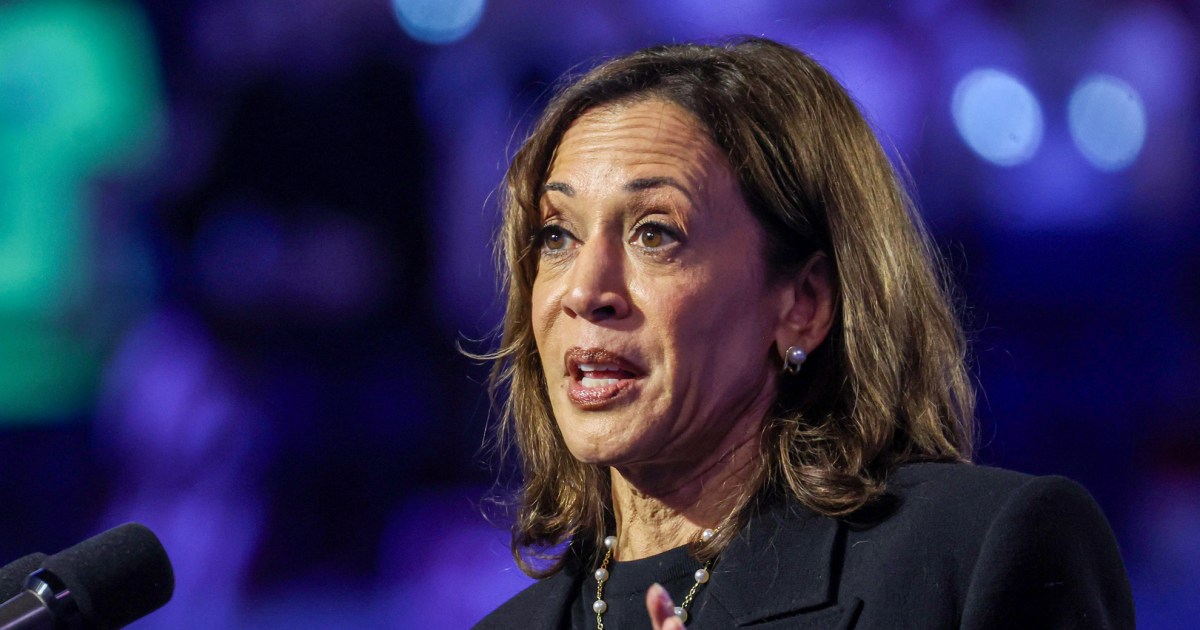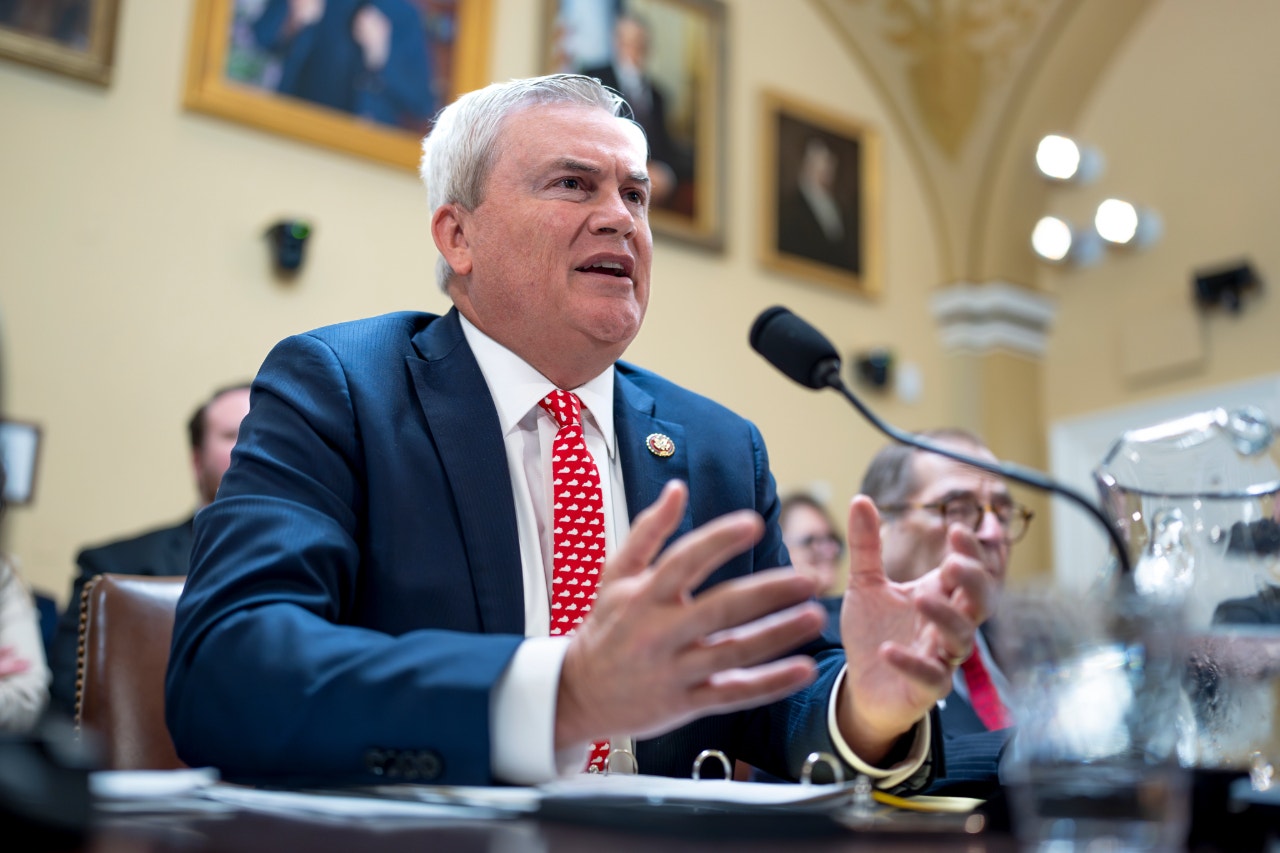World
Chances of Cyprus peace talks restart look dimmer as Turkish Cypriot leader sees no common ground
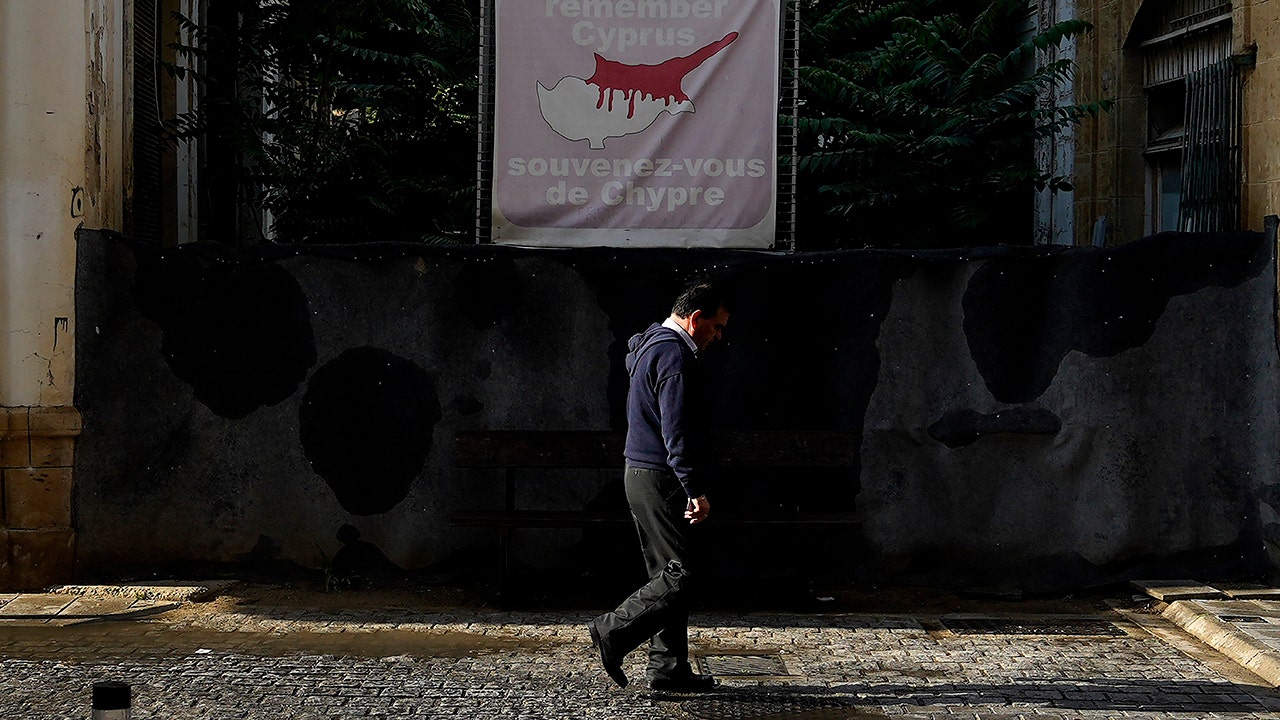
Chances of restarting formal talks to mend Cyprus’ decades-long ethnic division appeared dimmer Wednesday as the leader of the breakaway Turkish Cypriots told a U.N. envoy that he saw no common ground with Greek Cypriots for a return to negotiations.
Turkish Cypriot leader Ersin Tatar said that he conveyed to the U.N. secretary general’s personal envoy, María Ángela Holguín Cuéllar, that talks can’t happen unless separate Turkish Cypriot sovereignty in the island’s northern third first gains the same international recognition as the Cyprus republic in the Greek Cypriot south.
CYPRUS’ PRESIDENT CALLS ON EU TO TAKE ACTION AGAINST INFLUX OF SYRIAN REFUGEES FROM LEBANON
Tatar was quoted by Turkish Cypriot media as saying that a permanent Turkish military presence coupled with military intervention rights are prerequisites to any peace deal, despite Greek Cypriot attempts to “remove Turkey” from the settlement equation.
Tatar also expressed irritation with Holguín’s contacts with civil society groups that support an accord that would reunify Cyprus as a federation made up of Turkish Cypriot and Greek Cypriot zones, in line with a U.N.-endorsed framework.
A man walks across the U.N buffer zone in front of a blocked road as a banner shows the Cyprus island divided, the Turkish occupied area at the north and Cyprus republic at the south, in divided capital Nicosia, Cyprus, on Wednesday, May 15, 2024. Chances of restarting formal talks to mend Cyprus’ decades-long ethnic division appeared dimmer as the leader of the breakaway Turkish Cypriots told a United Nations envoy that he saw no common ground with Greek Cypriots for a return to negotiations. (AP Photo/Petros Karadjias)
The majority of Greek Cypriots reject a deal that would formalize a partition through a two-state deal, the permanent stationing of Turkish troops on the island, the right for Turkey to militarily intervene as well a demand for a Turkish Cypriot veto on all federal-level government decisions.
The Turkish Cypriot leader’s remarks don’t waver from a line that he’s consistently kept since his 2022 rise to power. But the fact that he remains unyielding despite four months of Holguín’s shuttle diplomacy doesn’t bode well for a talks restart.
Holguín was appointed at the start of the year to determine what the chances are of resuming formal talks seven years after the last major push for a deal collapsed amid much acrimony.
An agreement has defied numerous, U.N.-facilitated rounds of talks since 1974 when the island was cleaved along ethnic lines following a Turkish invasion preceded by a coup aimed at uniting the island with Greece. Only Turkey recognizes a Turkish Cypriot declaration of independence, and although Cyprus is a European Union member, only the south enjoys full membership benefits.
Holguín has refrained from speaking at length about her contacts over the last few months, but she noted in an interview with Kathimerini newspaper that it was up to the leaders to “listen to the people” and that she had been surprised at Tatar’s rejection of her proposal for a three-way meeting with Cypriot President Nikos Christodoulides.
Holguín will “soon” prepare a report for U.N. Secretary-General António Guterres about her findings over the last five months, according to U.N. deputy spokesman Farhan Haq.
Christodoulides struck a more upbeat note on Wednesday, saying that efforts for a resumption of talks continue and that time should be given for diplomacy to work.

World
Orbán's meeting with FPÖ leaders in Vienna sparks controversy
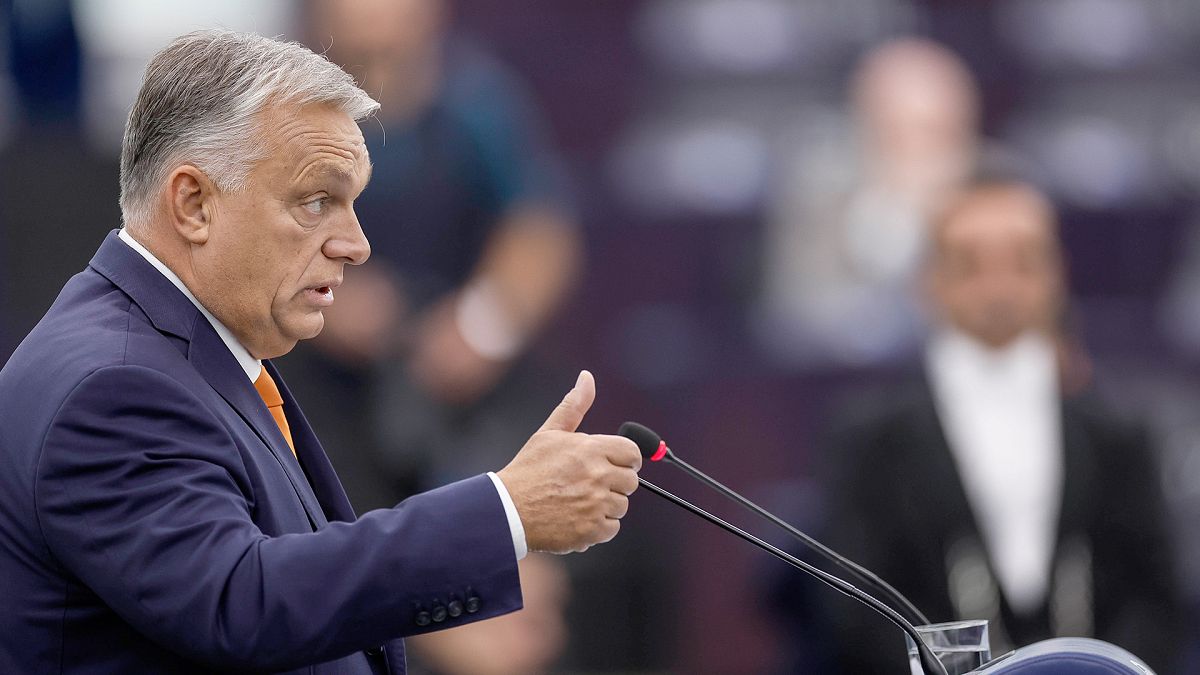
The Hungarian prime minister arrived in Vienna on Thursday, where he was received by parliamentary president Walter Rosenkranz in a meeting condemned by several Austrian political parties.
Despite criticism from other political parties, Austria’s newly elected parliament president, Walter Rosenkranz of the far-right Freedom Party (FPÖ), hosted Hungarian Prime Minister Viktor Orbán in Vienna as his first official guest.
The controversial visit took place in the Austrian parliament’s reception room, with the entire leadership of the FPÖ, including leader Herbert Kickl, reportedly in attendance.
After the meeting concluded, Orbán had a separate, private meeting with Kickl. However, nothing was initially revealed about the content of their conversation.
Rosenkranz said the meeting had been arranged before he took office.
Other Austrian parties, including the Greens and Social Democrats, had resisted Orbán’s visit. Green party parliamentary leader Sigrid Maurer said the FPÖ views Orbán as a role model, which should be considered “an absolute warning signal.”
FPÖ finished first in the recent Austrian parliamentary elections, garnering 29.2% of the vote in the country’s first far-right election win since World War II.
Experts say the party managed to tap into Austrian anxiety on housing and healthcare, as well as often successfully blaming migration for a host of other issues.
As is customary within Austria, the group with the highest number of votes appoints the President of Parliament – hence Rosenkranz being elected to the second-highest state office in the country last week.
Orbán will reportedly not meet with Austrian Chancellor Karl Nehammer during the visit.
Far-right alliance in Europe
Austria’s Freedom Party and Orbán’s Fidesz party both belong to the new European far-right group Patriots for Europe.
The party shares a deep aversion to the Green Deal, EU Commission President Ursula von der Leyen’s flagship initiative to achieve climate neutrality by 2050, and have challenged the project of European integration as well as the power granted to EU institutions.
Patriots for Europe are also opposed to providing Ukraine with military equipment, question the efficiency of Western sanctions against Moscow and want to maintain close relations with Russian President Vladimir Putin and his government.
It is the third-largest group in the European Parliament, boasting dozens of MEPs from countries like France, Italy and the Netherlands.
World
Analysis-US Crypto Industry Expects Friendlier Washington, Whoever Wins White House
World
Iran and Russia close in on deal as Tehran threatens revenge against Israel
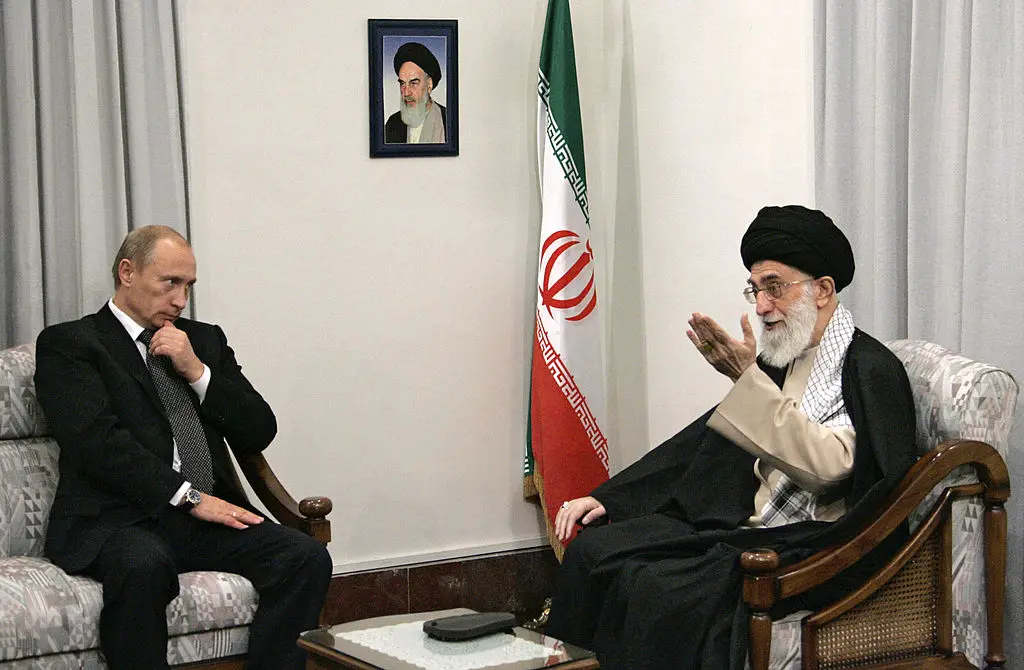
Iran and Russia are closing in on a deal that will bolster their defensive cooperation and strengthen military ties at a time when Western nations are increasingly concerned about regional wars in Europe and the Middle East.
“The treaty on a comprehensive strategic partnership between Russia and Iran that is being prepared will become a serious factor in strengthening Russian-Iranian relations,” Russian Foreign Minister Sergei Lavrov said on Thursday, according to a Reuters report.
The foreign minister, who said the treaty would be signed “in the near future,” claimed that the deal will “confirm” both Iran and Russia’s “interests of peace and security at the regional and global levels.”
President Vladimir Putin shakes hands with Iranian President Masoud Pezeshkian during a meeting on the sidelines of the BRICS summit in Kazan, Russia, Oct. 23, 2024. (Reuters/Maxim Shemetov/Pool)
PENTAGON SAYS IRAN SUPPLYING RUSSIA WITH BALLISTIC MISSILES
The details of the treaty remain unclear and Lavrov did not expand on what form this defensive partnership would take.
A similar agreement signed between Russia and North Korea earlier this year was followed by Pyongyang’s decision to send some 10,000 soldiers to its warring neighbor, which may potentially be deployed to fight in Ukraine, according to concerns signaled by the Pentagon.
But given that Iran already supplies Russia with defensive aid to propel its brutal war in Ukraine, it’s not only the repercussions this partnership could have for the war in Europe that concern Western security officials.
Russian President Vladimir Putin, who once shared a solid relationship with Israeli Prime Minister Benjamin Netanyahu, has not appeared to be overtly involved in the unfolding fight in the Middle East, unlike Russia’s top adversary, the U.S.
But a report by the Wall Street Journal earlier this month found that Moscow has been providing the Houthi terrorist group with satellite data to assist it in its repeated attacks on Western ships in the Red Sea. According to the report, the information was passed from Russia to “members of Iran’s Islamic Revolutionary Guard Corps (IRGC)… embedded with the Houthis in Yemen.”
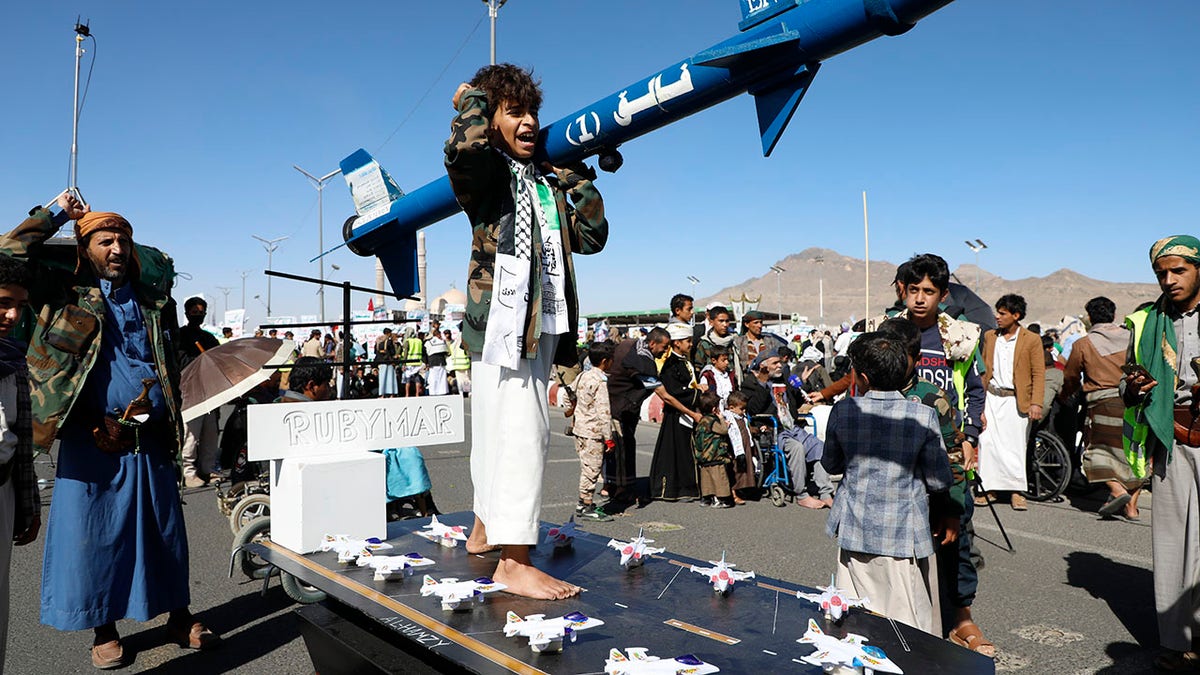
Houthi supporters attend a rally against the U.S.-led strikes on Yemen and Israel’s war in Gaza Strip, in Sanaa, Yemen, on Feb. 23, 2024. (AP/Osamah Abdulrahman)
PENTAGON THREATENS NO NEW LIMITS ON UKRAINE WEAPONS IF NORTH KOREA JOINS RUSSIA’S WAR
Russia has also increasingly called on Israel to show “restraint” when it comes to escalating tensions in the Middle East as it launched an incursion into Lebanon and struck Iran – which directly funds and arms the terrorist organizations, including Hamas, Hezbollah and the Houthis, warring with Jerusalem.
Tehran has once again threatened Jerusalem with a retaliatory hit after Israel launched aerial strikes on Friday. The series of tit-for-tat attacks continue as Israel pushes to eliminate Hamas in the Gaza Strip and Hezbollah in Lebanon.
Lt. Gen. Herzi Halevi, chief of the general staff of the Israel Defense Forces (IDF), on Tuesday responded to these threats and said, “If Iran makes the mistake of launching another missile barrage at Israel, we will once again know how to reach Iran.”
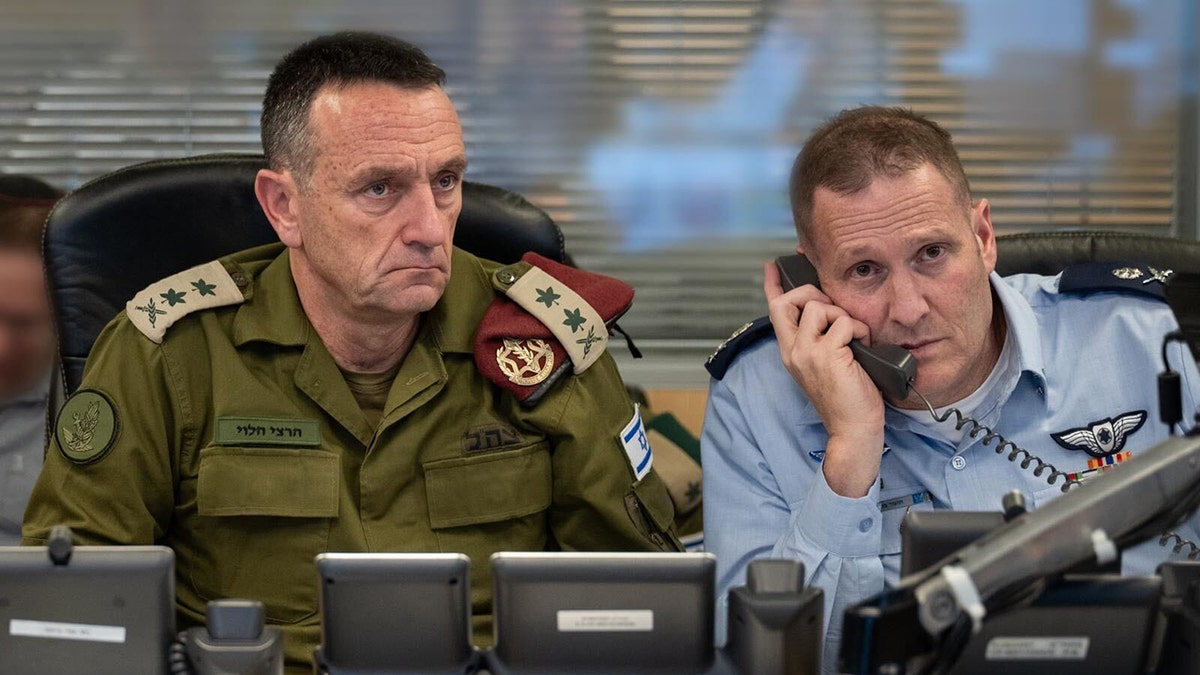
Lt. Gen. Herzi Halevi, chief of the general staff of the IDF, commands the strike on Iran from Camp Rabin, with the commanding officer of the Israeli Air Force, Maj. Gen. Tomer Bar. (IDF)
Halevi warned Israel will continue to escalate its attack “capabilities and locations” previously “set aside” if Iran responds with another strike on the Jewish state.
“We did this for a very simple reason, because we may be required to [strike] again. This event is not over, we are still in the midst of it,” he said while speaking from the Ramon Airbase in Israel. “I say this to you: we are highly prepared across all fronts.”
-

 Movie Reviews1 week ago
Movie Reviews1 week agoAlien Country (2024) – Movie Review
-
/cdn.vox-cdn.com/uploads/chorus_asset/file/25431700/STK201_SAM_ALTMAN_CVIRGINIA_A.jpg)
/cdn.vox-cdn.com/uploads/chorus_asset/file/25431700/STK201_SAM_ALTMAN_CVIRGINIA_A.jpg) Technology7 days ago
Technology7 days agoOpenAI plans to release its next big AI model by December
-

 Health6 days ago
Health6 days agoNew cervical cancer treatment approach could reduce risk of death by 40%, trial results show
-

 Culture7 days ago
Culture7 days agoTop 45 MLB free agents for 2024-25 with contract predictions, team fits: Will Soto get $600M+?
-

 Sports5 days ago
Sports5 days agoFreddie Freeman's walk-off grand slam gives Dodgers Game 1 World Series win vs. Yankees
-
News5 days ago
Sikh separatist, targeted once for assassination, says India still trying to kill him
-

 Culture4 days ago
Culture4 days agoFreddie Freeman wallops his way into World Series history with walk-off slam that’ll float forever
-

 Technology4 days ago
Technology4 days agoWhen a Facebook friend request turns into a hacker’s trap
